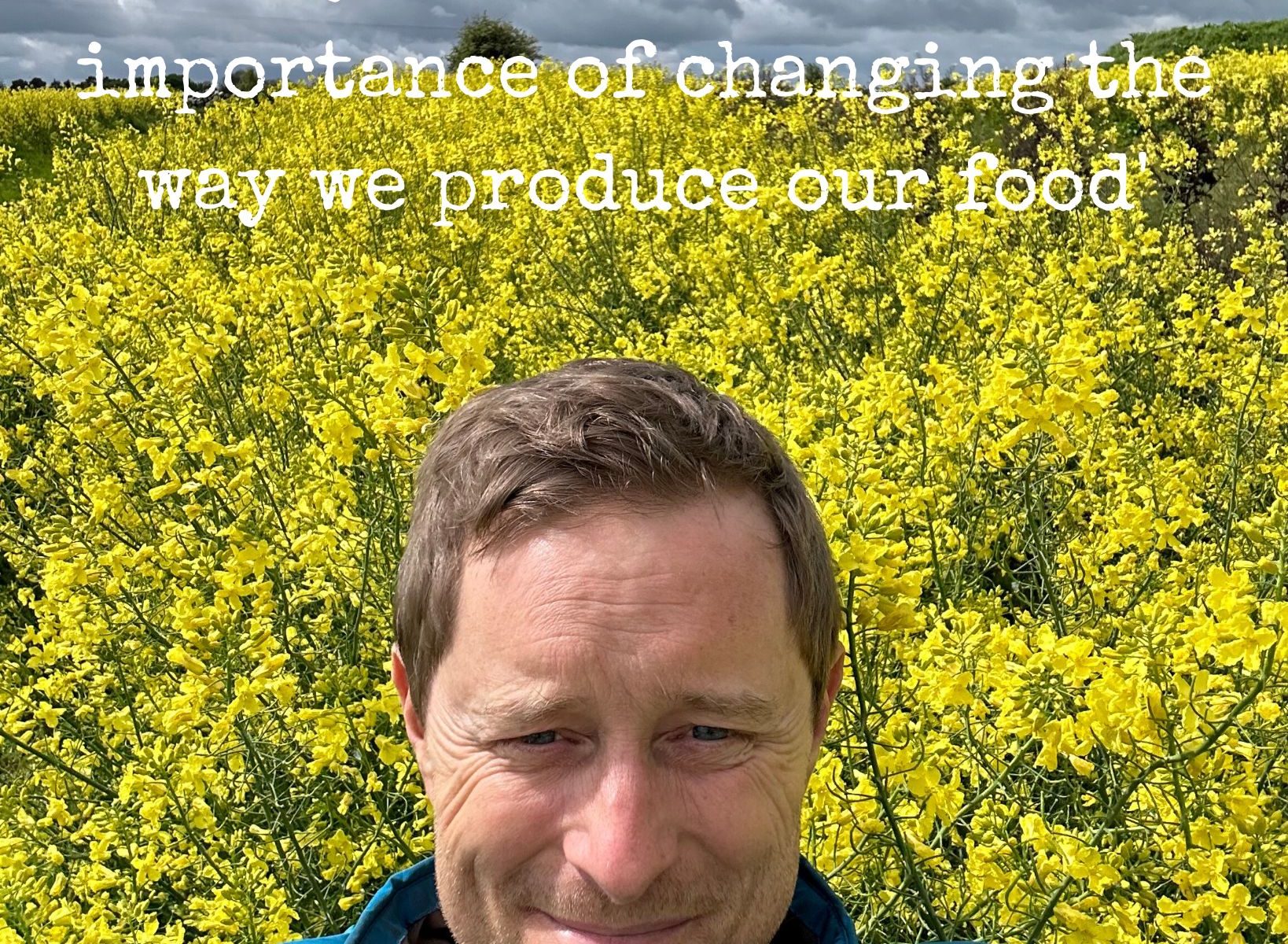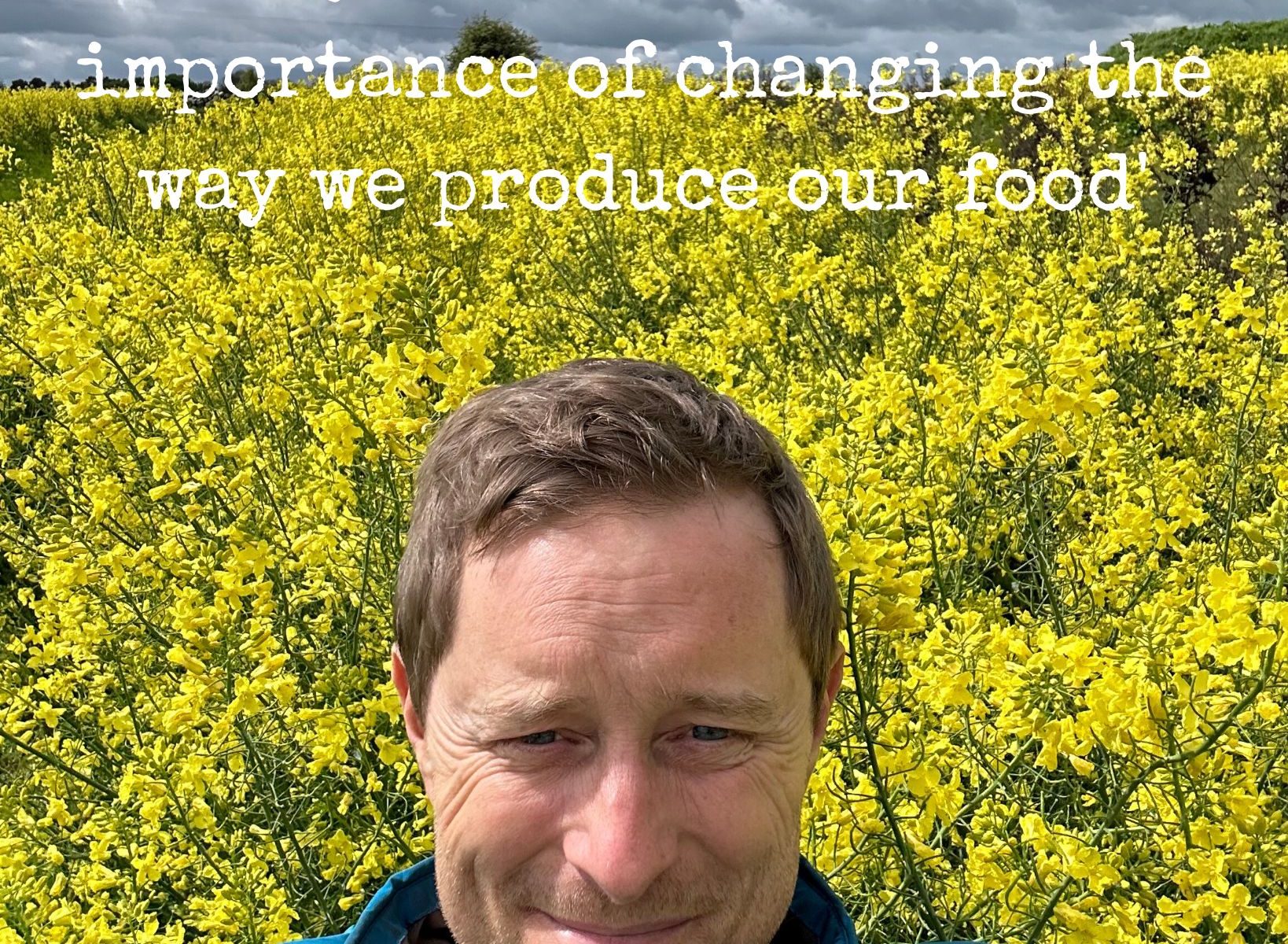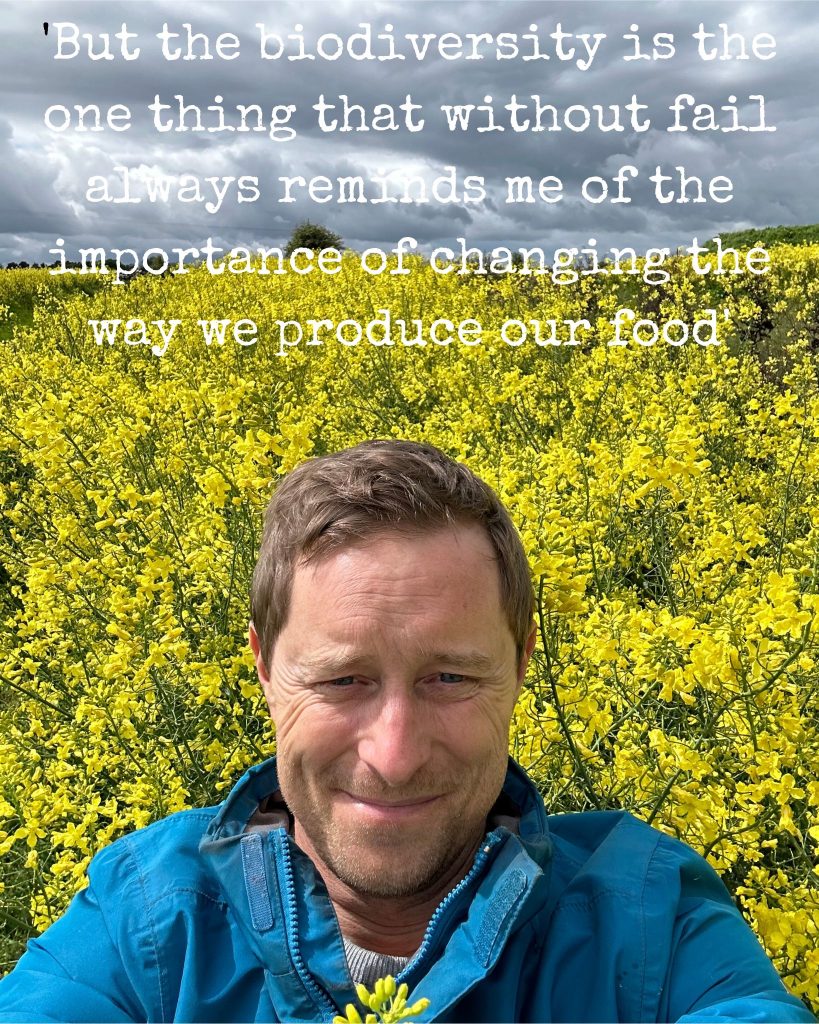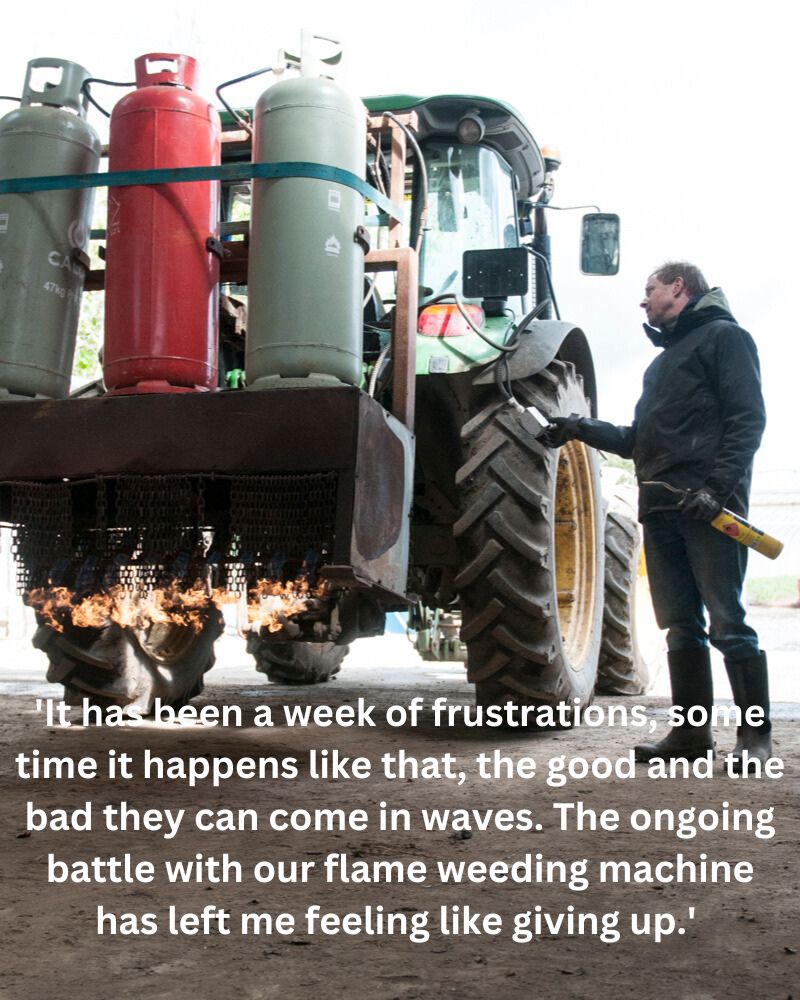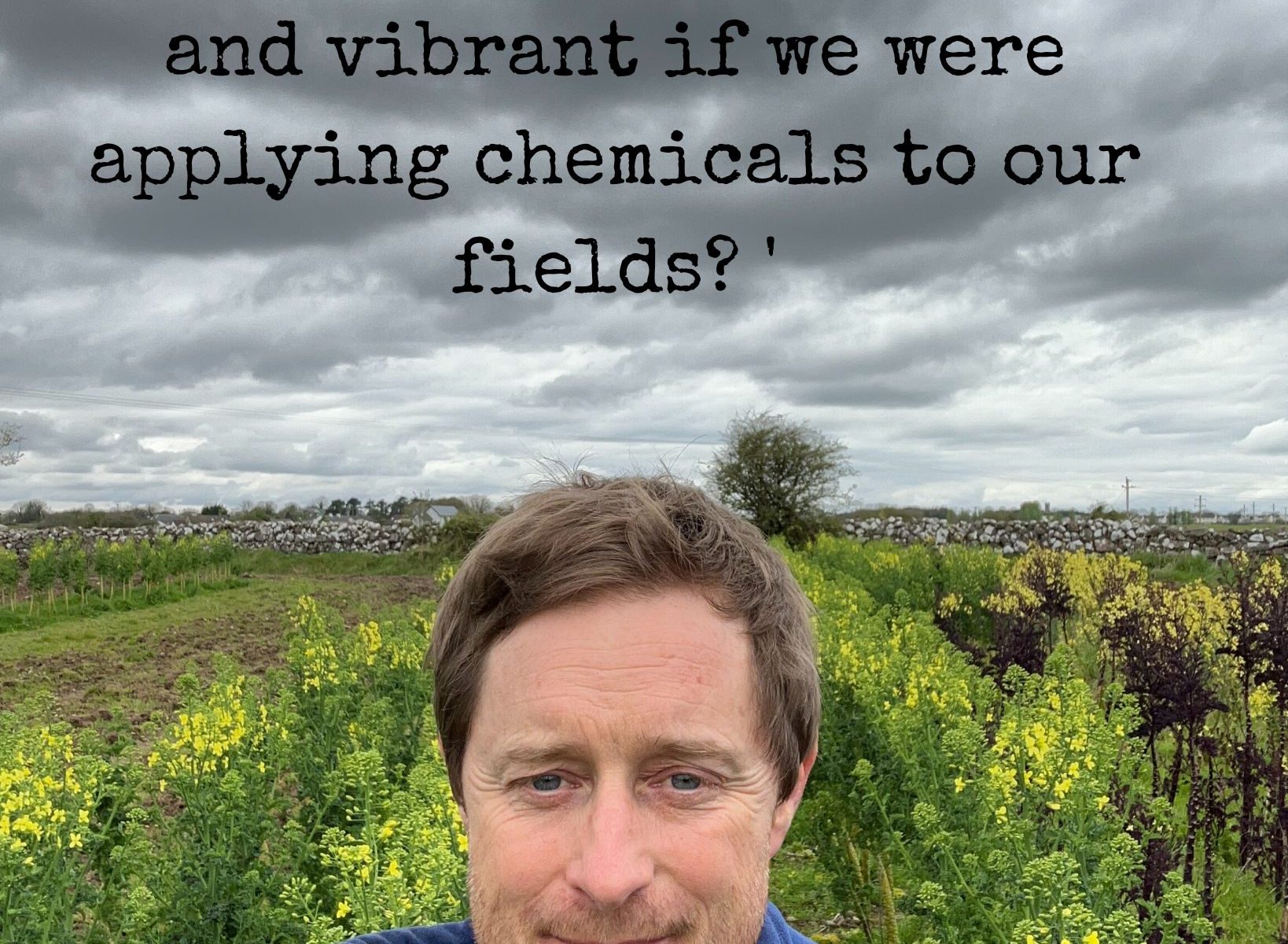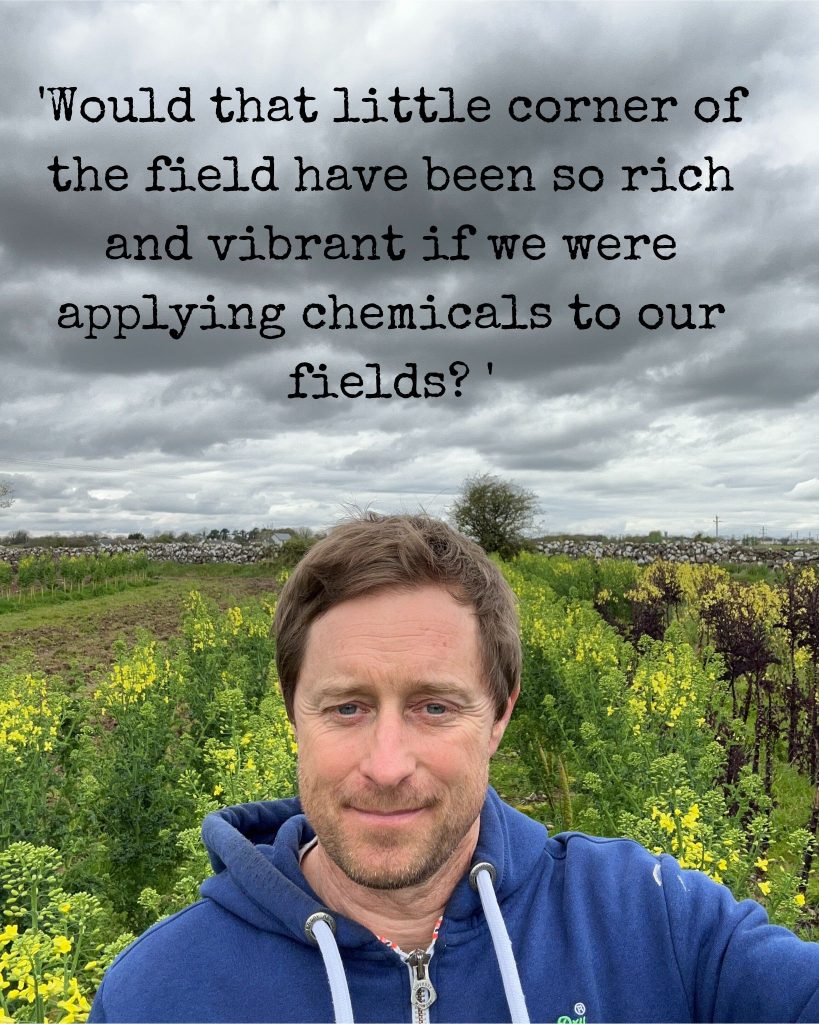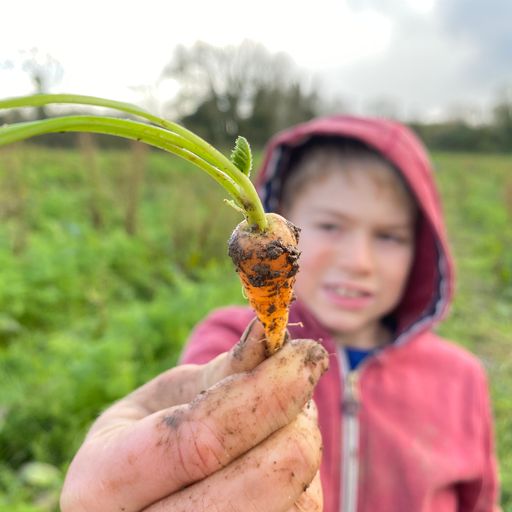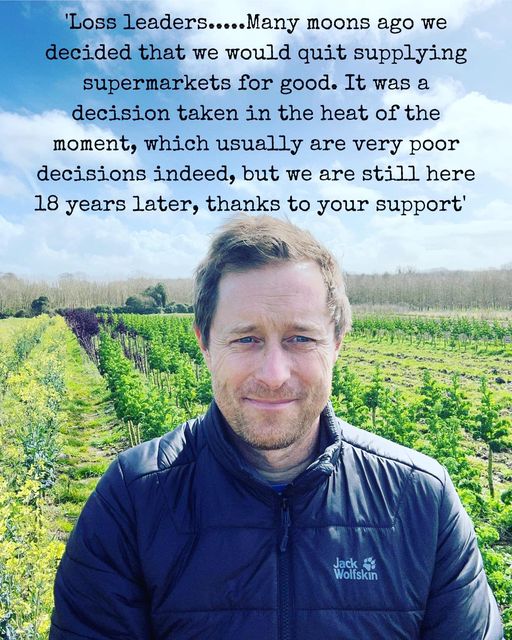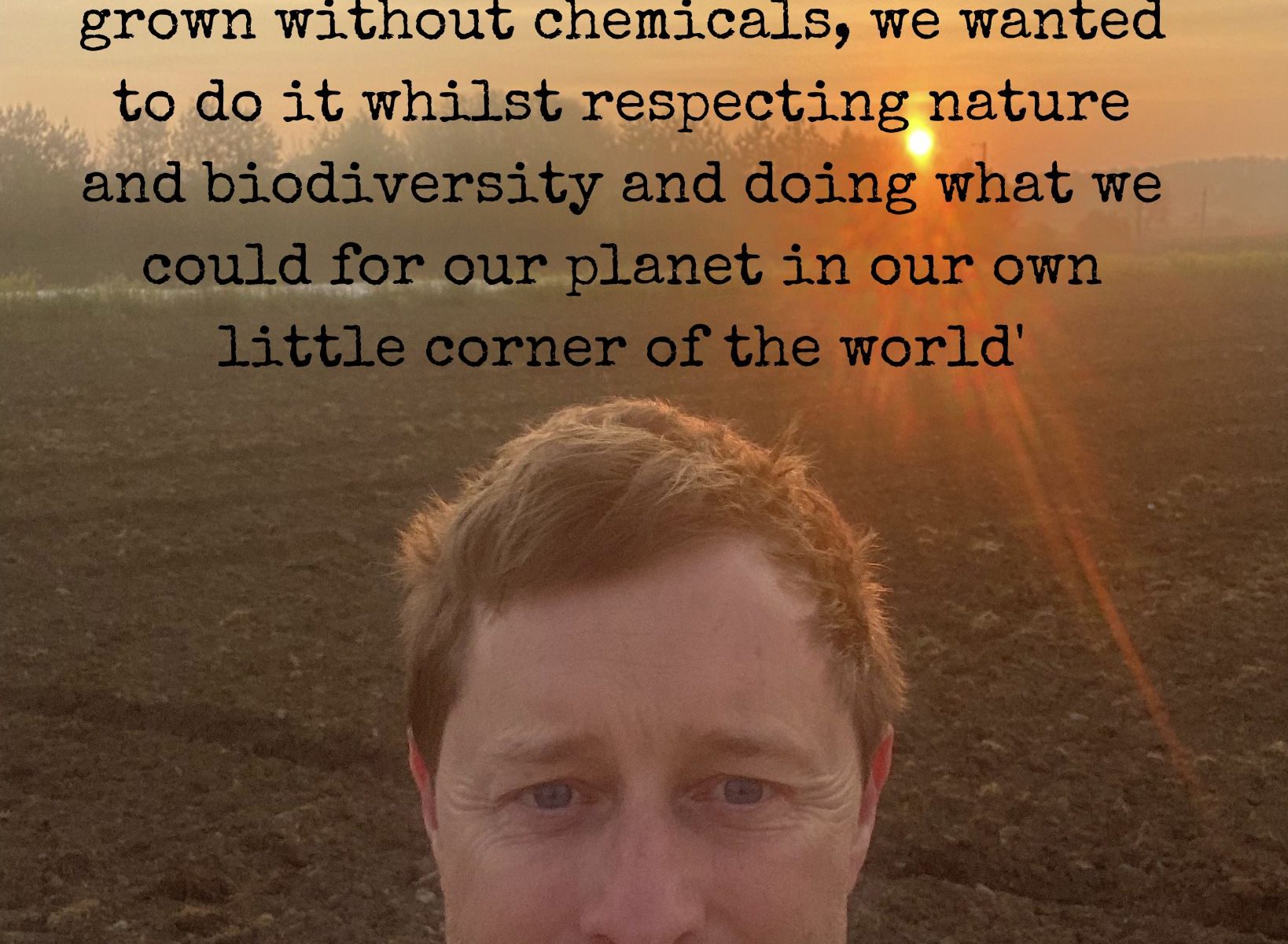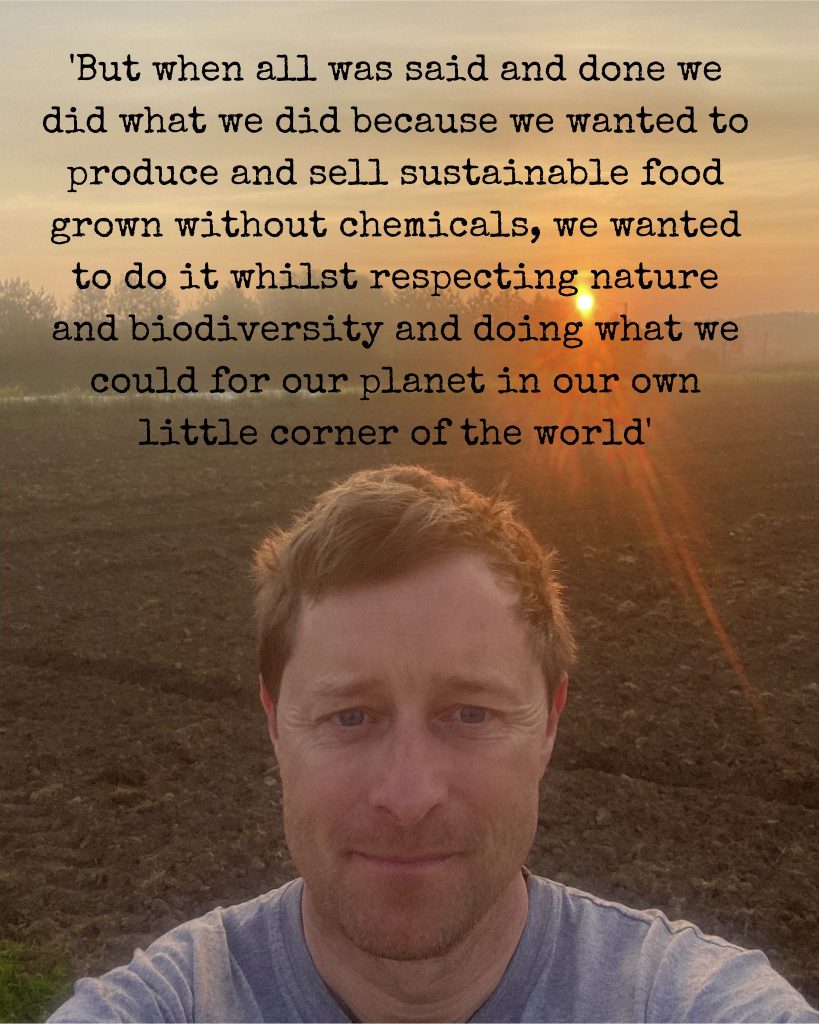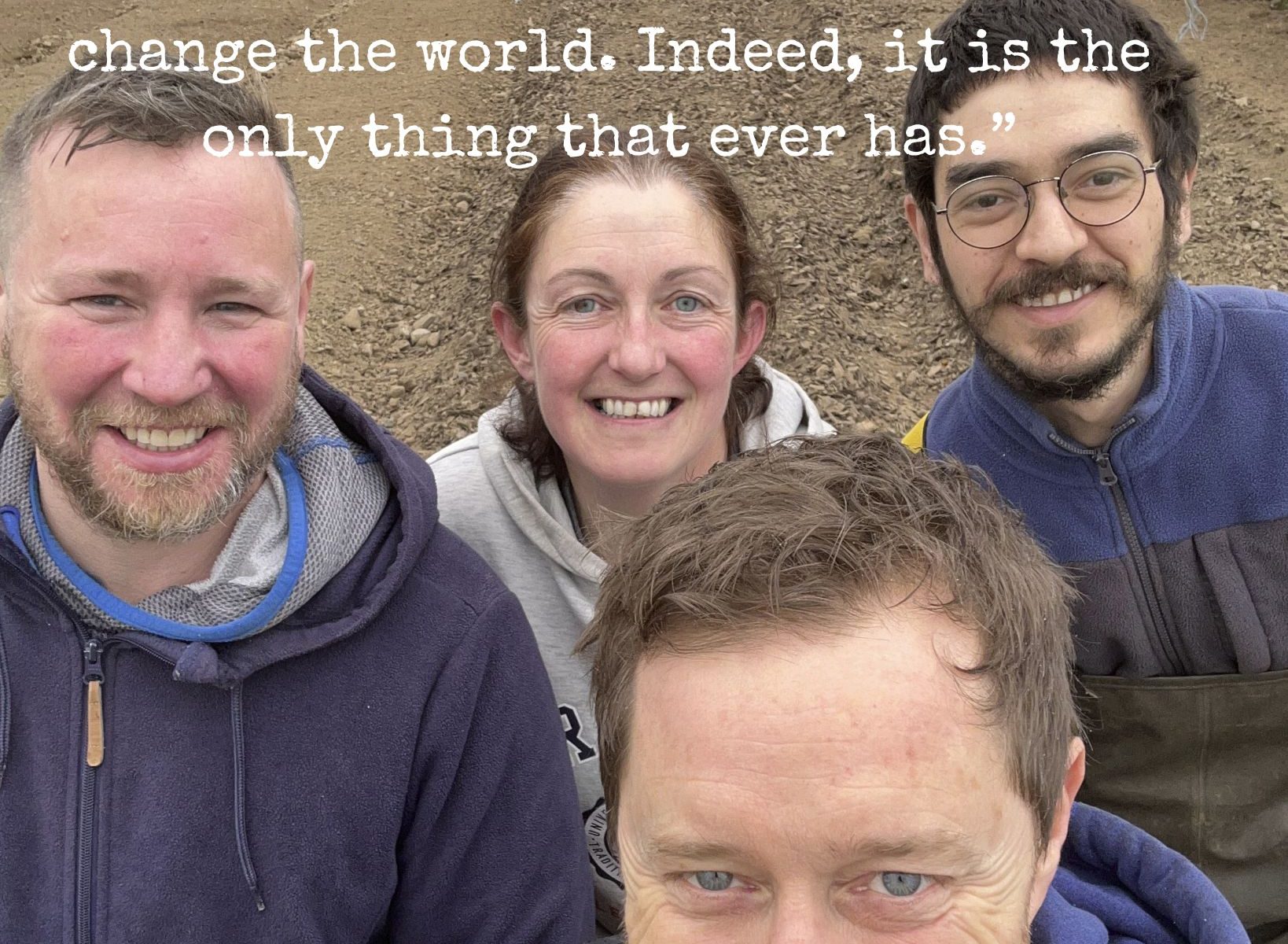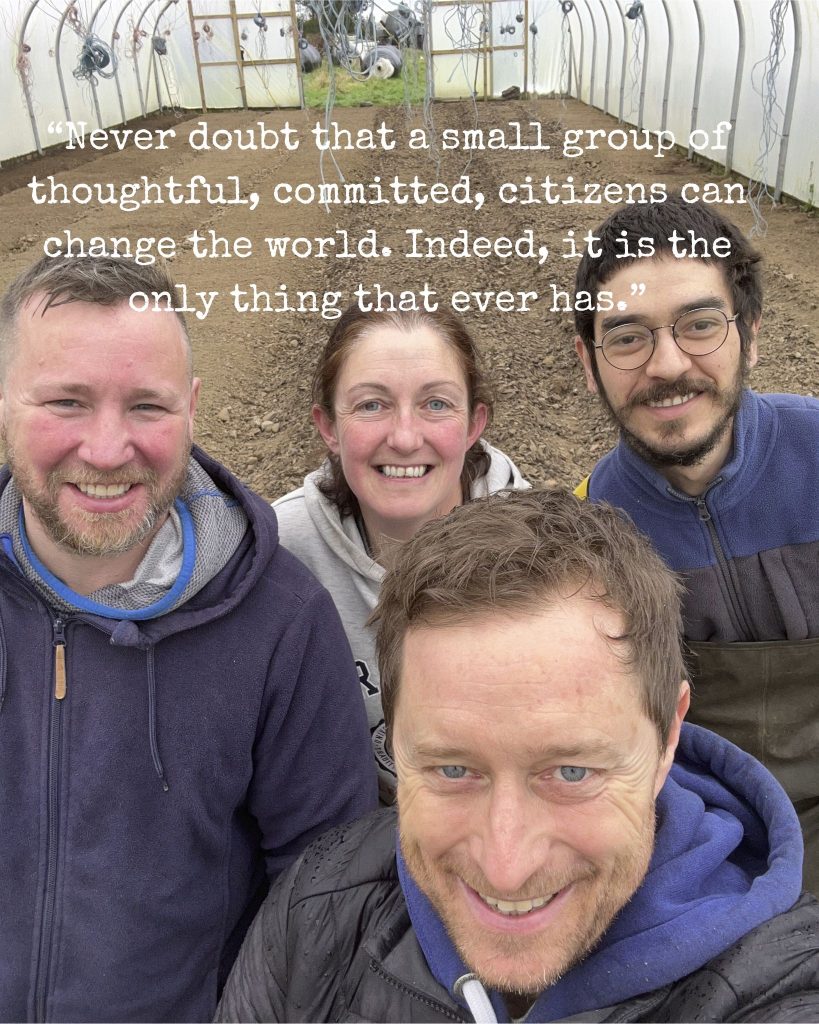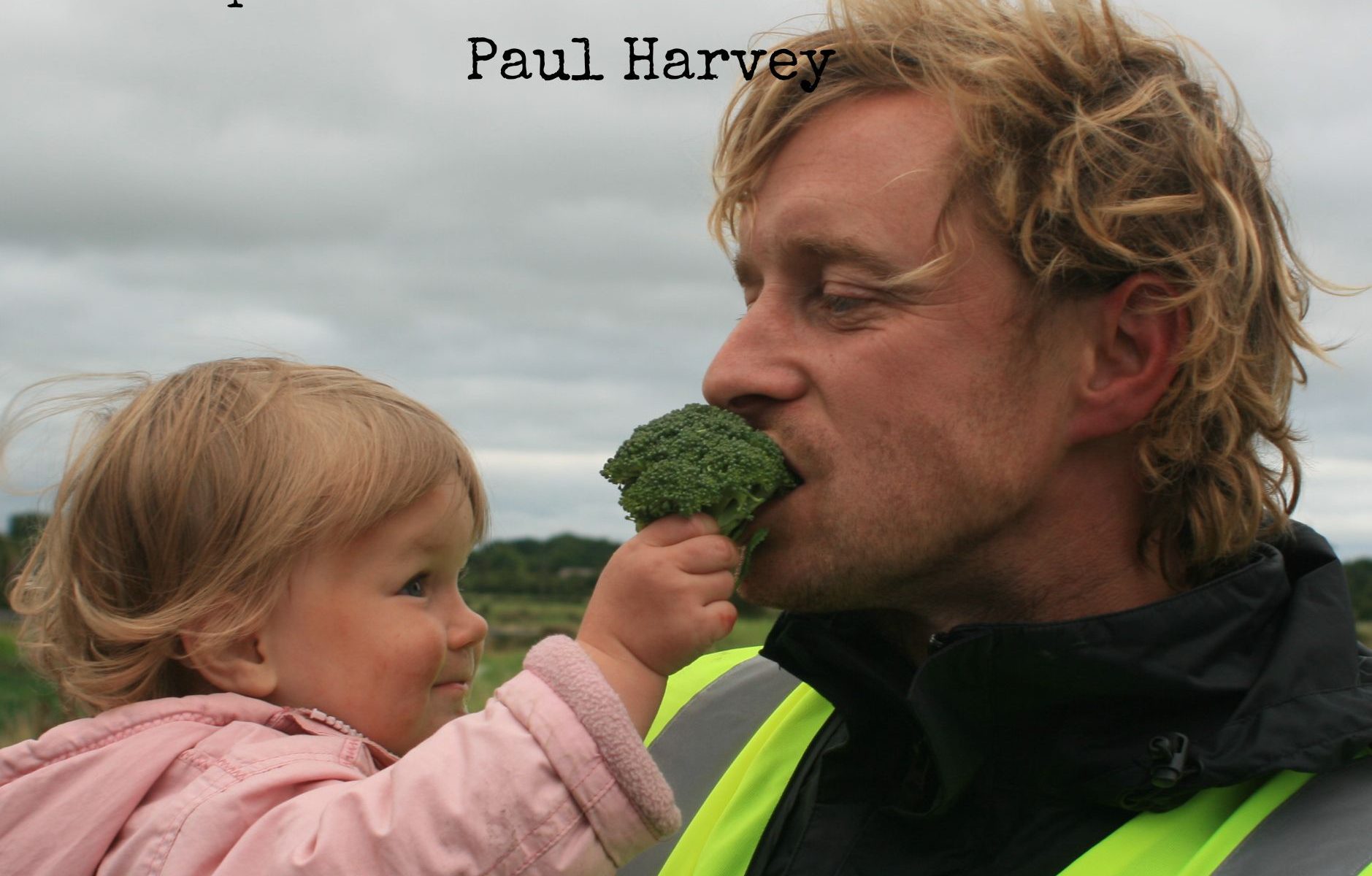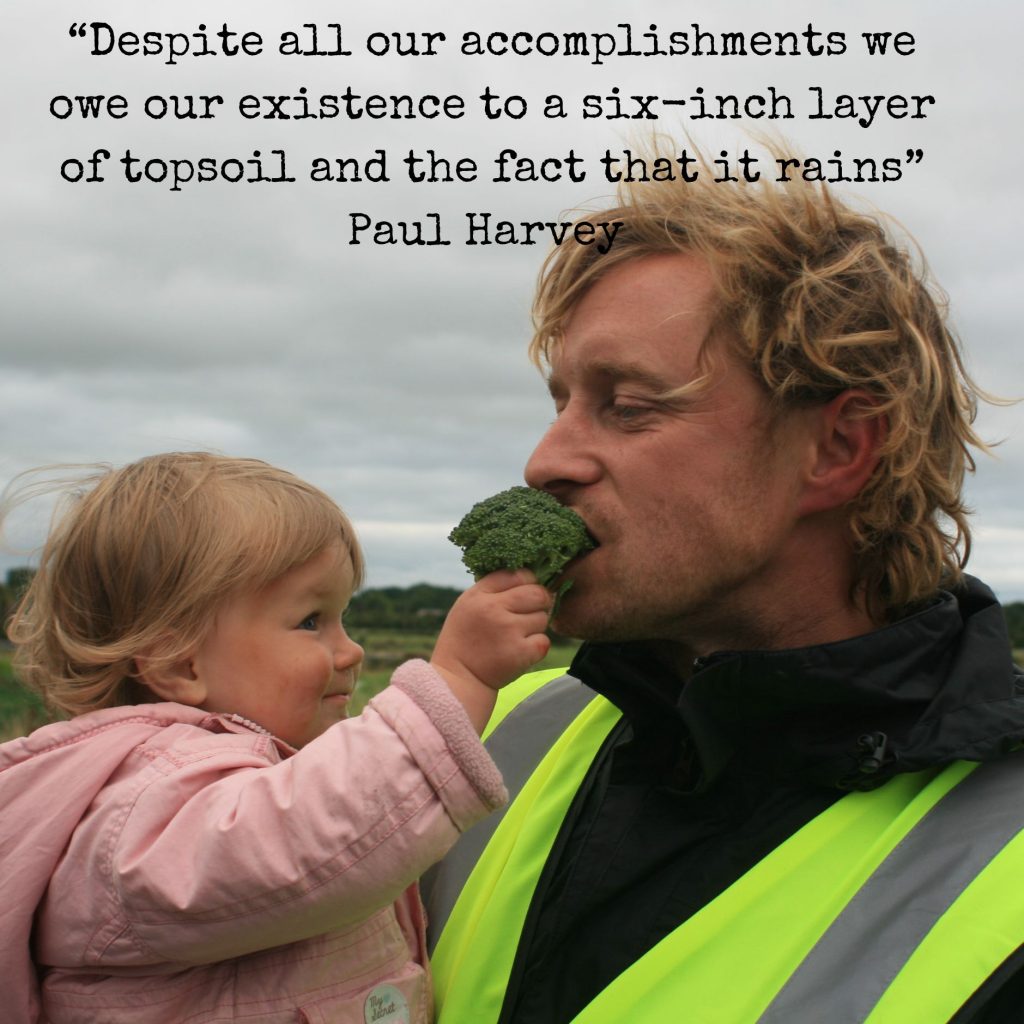I got a few rare days this week to spend time out on the farm and in the tractor, it has been a pleasure. We have been sowing many direct seeded crops, such as carrots, parsnips, beetroot, swede and of course our wildflowers.
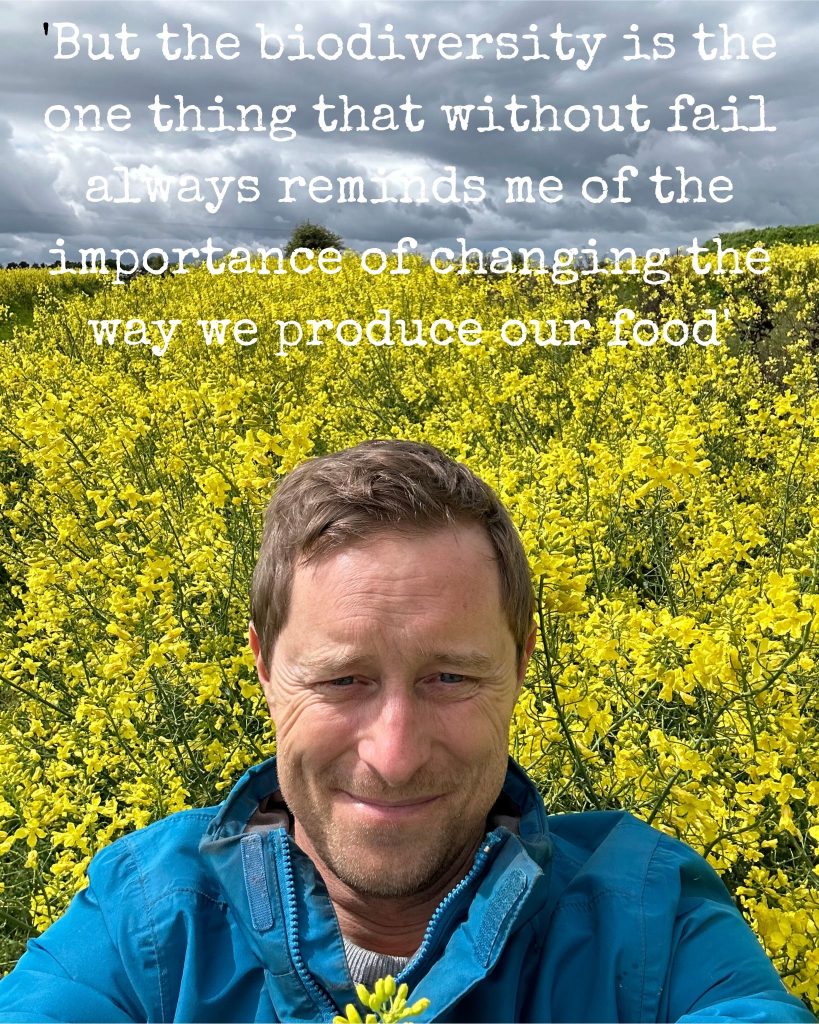
It’s been a week to the day that we sowed the first buckwheat, wildflower, and clover seeds and today they have started to germinate. I cannot wait to see the field in full bloom in 2 months’ time. It will be a haven for creatures great and small, a little oasis to fund our biodiversity bank.
We are completely dependent on this web of interconnectivity for our survival, it is that simple, without a healthy ecosystem we (humans) will not survive. The richness of biodiversity mirrors the health of our planet, locally and globally and the news unfortunately is not good. The use of chemicals in agriculture and the large crop monocultures are directly responsible for the destruction of habitats and the biodiversity that relies on these habitats for survival. We need nature plain and simple.
Here are some key facts:
Do you remember all the insects you used to see on the car windscreens when you were younger? Where have they all gone? Flying insect numbers have plunged by 60% since 2014 a British survey has shown, by measuring insect splats on cars. By 2015 each hectare of land in the UK received 3.9 kg of pesticides in 17.4 applications and eighty-seven percent of the total toxicity being applied to fields in 2015 was due to neonicotinoids. A six-fold increase in potential toxicity to insects in the period 1990–2015 corresponds closely with the timing of the 76% decline in flying insect biomass recorded in Germany in the period 1989–2014.
This very large increase in toxicity was mainly due to the introduction and widespread adoption of neonicotinoid insecticides from 1994 onwards. On the 27th of April 2018, this class of pesticides was banned from all outdoor use in the EU and will give our bees and insects a fighting chance at survival, at least you would think. However, in the years since, “emergency authorisations” for the use of these chemicals has been granted. In many cases these authorisations were granted repeatedly, or without any apparent evidence of an unusual or ‘emergency’ situation as justification.
Banning the use of these chemicals was a fantastic and positive step.
Next week is national Biodiversity week and there are so many other positive steps that we as farmers and gardeners can take now to improve biodiversity and help the bees and insects.
We have beehives on our farm, and they give us so much, bumper crops of courgettes for one. It is only right that we sow wildflowers and leave our kale to flower to feed them. We purposely leave brambles along all our walls, their flowers are an early food source for the bees (as are dandelion flowers), we leave wild areas where plants can go to flower.
But it was when we started planting wildflower strips that we noticed an astounding level of bee life. There were honeybees and several different types of bumble bee, and all sorts of other flying insects. We had created a farm reef for bees! On a sunny evening there are thousands of bees and insects humming away, and it is not until you look closely that you notice.
These steps have meant that we have an abundance of insect life on our farm, and I think it may be working in our favour. It seems that if we look after biodiversity, it will look after us and a more integrated approach to food production does work very well indeed.
Here’s to sustainable food and to the bees and to hopefully a return to the insects on our windscreens.
Kenneth
PS So don’t forget to place your order, and if there is two things you can do to support National Biodiversity week they are: “DO NOT spray your road verges with Roundup! and DO let an area of your garden go wild! Thank you” Also remember delivery is still FREE when you spend over €100.

